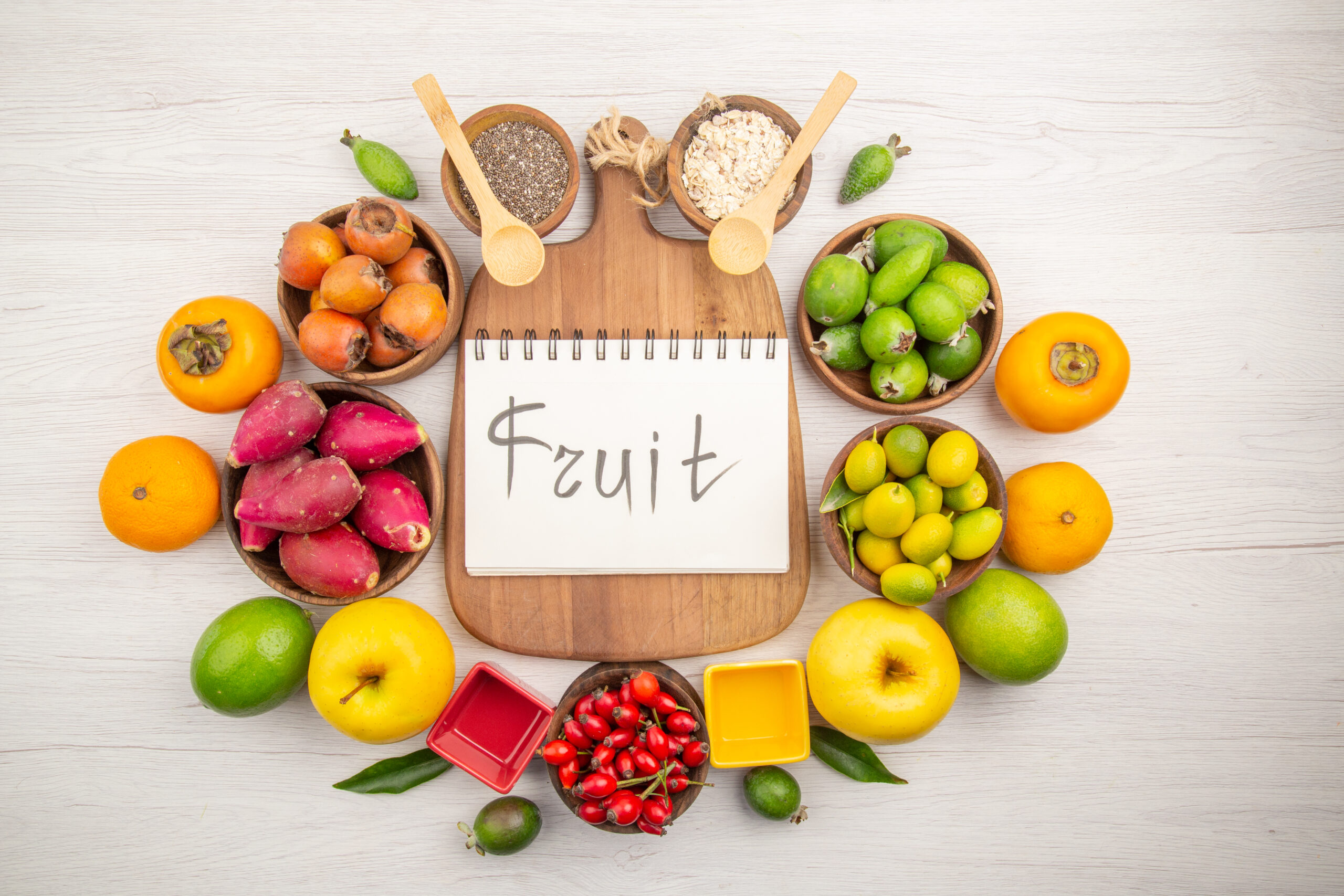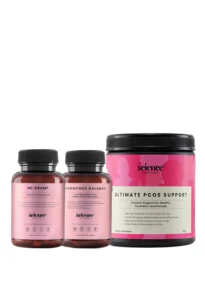Irregular periods can be frustrating, uncomfortable, and sometimes worrying. Many women experience irregular cycles, heavy or light bleeding, or missed periods, which can impact daily life and overall health. Fortunately, the right food for irregular periods can help restore balance naturally. By including nutrient-rich foods, fruits, seeds, and herbs in your diet, you can support hormonal health, reduce discomfort, and promote more consistent cycles.
Irregular periods are often caused by hormonal imbalances, PCOS, thyroid disorders, stress, or lifestyle factors. While medical guidance is essential, dietary interventions are a powerful first step to support your body. Incorporating specific food for irregular periods into your daily routine can nourish your body, improve menstrual health, and enhance your overall well-being. This article explores the most effective foods, nutrients, and lifestyle practices to help regulate your menstrual cycle naturally.
Understanding Irregular Periods
Irregular periods refer to menstrual cycles that are inconsistent in length, flow, or timing. Women may experience missed periods, spotting between cycles, or unusually heavy or light bleeding. Understanding the causes of irregular periods is crucial to address them effectively with the right food for irregular periods.
Common Causes of Irregular Periods
- Hormonal Imbalance: Estrogen and progesterone are the main hormones regulating menstrual cycles. When these hormones fluctuate due to stress, poor nutrition, or other factors, ovulation may be delayed, causing irregular periods. Eating the right food for irregular periods can help restore hormonal balance naturally.
- Polycystic Ovary Syndrome (PCOS): PCOS affects the ovaries’ ability to release eggs regularly. Women with PCOS often have irregular cycles, and consuming hormone-supporting foods can improve cycle consistency.
- Thyroid Disorders: The thyroid gland influences metabolism and hormone levels. Both hyperthyroidism and hypothyroidism can disrupt menstrual cycles, but nutrient-rich foods can help support thyroid function and regulate periods.
- Weight Fluctuations: Rapid weight gain or loss can lead to hormone imbalance, affecting cycle regularity. A balanced diet including food for irregular periods helps maintain a healthy weight and hormone levels.
- Stress and Lifestyle: High stress, lack of sleep, and sedentary behavior can all affect hormonal balance. Combining stress management with the right foods ensures better regulation of menstrual cycles.
Adding these dietary interventions, along with lifestyle changes, helps address the root causes of irregular periods and improves overall reproductive health.
Best Food for Irregular Periods
Eating a balanced and hormone-friendly diet is essential for regulating your menstrual cycles. The following are some of the most effective food for irregular periods and how they support hormonal health:
Nutrient-Rich Foods for Hormonal Balance
- Leafy Greens: Spinach, kale, and swiss chard are rich in iron and magnesium, essential for replenishing blood lost during periods and reducing menstrual cramps. Including leafy greens daily supports liver detoxification, which is crucial for hormone metabolism.
- Whole Grains: Brown rice, quinoa, oats, and millet provide B vitamins and fiber that help regulate hormones and improve insulin sensitivity. Whole grains also stabilize blood sugar levels, which indirectly supports regular cycles.
- Legumes and Lentils: Chickpeas, beans, lentils, and peas offer protein and fiber, supporting estrogen balance and providing steady energy throughout the day.
Fruits That Support Menstrual Health
- Papaya: Contains the enzyme papain, which can stimulate uterine contractions and help regulate menstrual flow.
- Pineapple: Bromelain in pineapple reduces inflammation and supports the health of the uterine lining, aiding in smoother cycles.
- Berries: Blueberries, strawberries, and raspberries are packed with antioxidants, which combat oxidative stress and promote hormonal balance.
- Oranges and Pomegranates: Rich in vitamin C and folate, they support blood health and can ease symptoms associated with irregular cycles.
Hormone-Friendly Seeds and Nuts
- Flaxseeds: Rich in phytoestrogens and omega-3 fatty acids, flaxseeds help balance estrogen levels and reduce inflammation.
- Chia Seeds: High in fiber, protein, and minerals, chia seeds support stable hormones and can improve menstrual regularity.
- Walnuts and Almonds: Provide vitamin E, healthy fats, and protein, all essential for reproductive and hormonal health.
- Pumpkin Seeds: Packed with zinc, which supports ovulation and overall hormonal function.
Herbs and Spices for Menstrual Regulation
- Turmeric: Contains curcumin, which has anti-inflammatory properties that can reduce menstrual pain and support cycle regularity.
- Ginger: Helps relieve menstrual cramps and promotes healthy blood circulation during periods.
- Cinnamon: Can improve insulin sensitivity, particularly beneficial for women with PCOS, and helps maintain hormonal balance.
- Parsley and Carom Seeds (Ajwain): Traditional remedies believed to stimulate menstrual flow and support uterine health naturally.
Hydration and Detox Foods
- Water and Herbal Teas: Chamomile, fennel, peppermint, and green tea can relax muscles, reduce bloating, and support regular cycles.
- Aloe Vera Juice: Detoxifies the body, supports liver function, and helps in maintaining hormonal balance.
- Coconut Water: Hydrates and provides electrolytes, reducing bloating and supporting overall menstrual health.
Lifestyle Tips to Complement Diet
While diet plays a key role, lifestyle adjustments amplify the effectiveness of food for irregular periods. Consistently applying these habits can help restore hormonal balance and regulate cycles naturally:
- Exercise Regularly: Yoga, brisk walking, swimming, and strength training improve blood circulation, reduce stress, and support endocrine function.
- Manage Stress: Meditation, deep breathing exercises, journaling, and mindfulness techniques reduce cortisol levels, which can positively impact menstrual regularity.
- Prioritize Sleep: Ensuring 7–9 hours of quality sleep each night is crucial for hormone production and menstrual health.
- Limit Processed Foods and Sugar: High sugar and processed foods can lead to insulin resistance, impacting estrogen balance and contributing to irregular periods.
- Maintain Healthy Weight: Achieving and maintaining a healthy BMI through a combination of diet and exercise supports regular ovulation and menstruation.
- Mind-Body Practices: Incorporating practices like acupuncture, Reiki, or aromatherapy can complement dietary changes in regulating cycles.
Start Your Healing Journey with Smriti Kochar
Your body has incredible healing potential when given the right support. If irregular periods are affecting your life, it’s time to address the root causes naturally. At Smriti Kochar’s Ultra-Wellness Program, we guide women to restore hormonal balance through food, lifestyle, and personalized care—without medicines.
Start your journey toward regular periods and improved hormonal health today.
Start Your Healing Journey Now.
Conclusion
Incorporating the right food for irregular periods along with lifestyle practices can greatly improve menstrual cycle regularity and overall hormonal health. Leafy greens, whole grains, legumes, fruits, seeds, nuts, herbs, and proper hydration work together to nourish the body and balance hormones. While food is a natural first-line support, medical guidance should be sought when necessary.
For additional support, The Science of Good Health Hormone Balance for Women helps maintain healthy period cycles, support fertility, and aid during peri-menopause.
Read Our Latest Blogs
Why Irregular Periods Happen | How to Cure Irregular Periods Naturally | Irregular Period After Abortion | Irregular Periods and Pregnancy | Cramps but No Period | Reasons for No Periods After Deviry
Frequently Asked Questions
Ans: Hormonal imbalance, PCOS, thyroid disorders, stress, rapid weight changes, and poor diet are the most common causes of irregular periods.
Ans: While food for irregular periods is highly supportive, combining a nutrient-rich diet with lifestyle adjustments yields the best results.
Ans: Papaya, pineapple, berries, oranges, and pomegranates are highly effective for promoting menstrual health and regulating cycles.
Ans: Women usually notice improvements within 2–3 months of consistently following a hormone-supporting diet and lifestyle.
Ans: Yes, flaxseeds, chia seeds, walnuts, almonds, and pumpkin seeds provide essential nutrients for hormone balance and menstrual regularity.
Ans: Herbal teas such as chamomile, fennel, peppermint, and green tea can relax muscles, reduce bloating, and support cycle regularity naturally.
Ans: Yes, regular exercise improves blood flow, reduces stress, enhances hormone function, and helps maintain a healthy weight, all of which support regular periods.
Ans: Absolutely. Persistent irregular periods, especially with pain or heavy bleeding, require medical evaluation to rule out underlying conditions.





